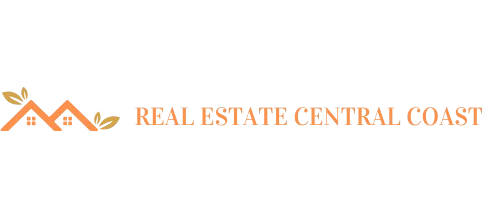In the bustling real estate landscape of Sydney, the importance of securing a qualified conveyancer cannot be overstated. As the property market continues to thrive, buyers and sellers alike face the challenge of navigating complex legalities and ensuring that transactions proceed smoothly. This article aims to provide insights into how to find qualified conveyancers in Sydney, offering practical tips and advice to help you make informed decisions.
Understanding the Role of a Conveyancer
Before diving into the search for a qualified conveyancers, it is essential to understand what a conveyancer does. A conveyancer is a licensed professional who assists with the legal aspects of buying and selling property. Their role involves preparing and reviewing contracts, conducting property searches, and ensuring compliance with local laws.
The Importance of Professional Expertise
Engaging a qualified conveyancer can save time and reduce the risk of costly mistakes. The legalities involved in property transactions can be intricate, and having a knowledgeable professional by your side can provide peace of mind. They can identify potential issues early, allowing for timely resolutions and smoother transactions.
Services Offered by Conveyancers
Conveyancers offer a range of services that cater to both buyers and sellers. These include:
- Contract preparation and review
- Conducting property searches and due diligence
- Liaising with real estate agents and financial institutions
- Managing settlement processes
Understanding these services can help you determine what you need from a conveyancer and how they can facilitate your property transaction.
In addition to the core services listed, many conveyancers also provide valuable advice on the implications of property ownership, such as tax obligations and potential future developments in the area that could affect property value. They often have a wealth of local knowledge, which can be particularly beneficial when assessing the desirability of a neighbourhood or understanding local council regulations. This insight can prove invaluable, especially for first-time buyers who may not be familiar with the nuances of the property market.
Furthermore, a good conveyancer will keep you informed throughout the entire process, ensuring that you are aware of any developments or changes that may arise. They will typically offer a transparent fee structure, allowing you to budget effectively for your transaction. By fostering open communication, they can help alleviate the stress often associated with buying or selling property, making the experience more manageable and less daunting for all parties involved.
Identifying Qualified Conveyancers
With numerous conveyancers operating in Sydney, identifying qualified professionals can feel overwhelming. However, there are several strategies to streamline your search.
Researching Credentials and Experience
Start by researching the credentials of potential conveyancers. In Australia, conveyancers must be licensed and registered with the relevant state authority. Check their qualifications and any additional certifications that may enhance their expertise. Experience is also a crucial factor; a conveyancer with a proven track record in the Sydney market will likely have a better understanding of local regulations and practices. Furthermore, consider how long they have been in the industry and whether they have dealt with similar properties to yours. A conveyancer who has navigated complex transactions or has experience with specific property types, such as strata or commercial properties, may offer insights that can save you time and money.
Seeking Recommendations
Word of mouth can be a powerful tool in finding a qualified conveyancer. Ask friends, family, or colleagues who have recently bought or sold property in Sydney for their recommendations. Personal experiences can provide valuable insights into the professionalism and effectiveness of a conveyancer. Additionally, you might consider reaching out to local real estate agents, as they often work closely with conveyancers and can provide referrals based on their experiences. When gathering recommendations, don’t hesitate to ask specific questions about the conveyancer’s communication style, responsiveness, and ability to handle unexpected issues that may arise during the conveyancing process.
Utilising Online Resources
In today’s digital age, online resources can be invaluable in your search for a conveyancer. Websites that specialise in property services often feature reviews and ratings from previous clients. Additionally, professional associations may provide directories of qualified conveyancers, allowing you to filter by location and specialisation. Engaging with online forums or social media groups dedicated to property transactions in Sydney can also yield helpful advice and personal anecdotes from other buyers and sellers. These platforms can serve as a rich source of information, allowing you to gauge the reputation of various conveyancers and identify those who are well-regarded within the community. Remember to look for conveyancers who actively engage with their clients online, as this can be a good indicator of their commitment to customer service and ongoing professional development.
Evaluating Potential Conveyancers
Once you have compiled a list of potential conveyancers, the next step is to evaluate them based on specific criteria to ensure they meet your needs.
Initial Consultations
Many conveyancers offer free initial consultations. Take advantage of this opportunity to discuss your needs and assess their communication style. A good conveyancer should be approachable, willing to answer your questions, and able to explain complex legal terms in simple language.
Understanding Fees and Charges
Conveyancing fees can vary significantly, so it is essential to understand the cost structure before making a decision. Ask for a detailed breakdown of fees, including any additional charges that may arise during the process. A transparent conveyancer will provide a clear estimate and outline what services are included.
Assessing Communication and Availability
Effective communication is vital during a property transaction. Ensure that the conveyancer you choose is easily reachable and responsive to your queries. Their availability during critical stages of the process can significantly impact the overall experience.
Questions to Ask Your Conveyancer
When meeting with potential conveyancers, asking the right questions can help you gauge their suitability for your needs. Here are some essential questions to consider:
What is your experience with properties similar to mine?
Understanding their experience with similar property types can give you confidence in their ability to handle your transaction effectively. Whether you are buying a residential home, commercial property, or vacant land, a conveyancer with relevant experience will be better equipped to address specific challenges.

How do you handle potential issues that may arise?
Inquire about their approach to problem-solving. A qualified conveyancer should have strategies in place for handling common issues, such as disputes over contract terms or complications during the settlement process. Their ability to navigate these challenges can make a significant difference in the outcome of your transaction.
Can you provide references from past clients?
Requesting references can provide further assurance of a conveyancer’s capabilities. Speaking with past clients can give you insight into their experiences and the level of service provided. A reputable conveyancer should be willing to share references upon request.
Understanding the Costs Involved
Understanding the costs associated with conveyancing is crucial for budgeting your property transaction. While it may be tempting to opt for the cheapest option, it is essential to consider the value of the services provided.
Typical Fee Structures
Conveyancing fees typically fall into two categories: fixed fees and hourly rates. Fixed fees provide certainty, allowing you to know the total cost upfront. Hourly rates, on the other hand, can lead to unexpected expenses if the transaction becomes complex. Discuss the fee structure with your conveyancer to determine which option is best for your situation.
Additional Costs to Consider
Aside from the conveyancer’s fees, there may be additional costs associated with the property transaction. These can include government fees for property searches, stamp duty, and disbursements for various services. A qualified conveyancer should provide a comprehensive estimate that includes all potential costs, allowing you to plan accordingly.
The Importance of Local Knowledge
In a competitive market like Sydney, local knowledge can be a significant advantage. A conveyancer with extensive experience in the Sydney area will have insights into local regulations, market trends, and potential challenges that may arise during a transaction.
Understanding Local Regulations
Each local council in Sydney may have specific regulations that impact property transactions. A conveyancer familiar with these regulations can help ensure compliance and avoid potential pitfalls. Their expertise can be particularly beneficial in navigating zoning laws, development approvals, and other local requirements.
Awareness of Market Trends
The Sydney property market is dynamic, with trends that can change rapidly. A conveyancer with a finger on the pulse of the market will be better equipped to advise clients on timing, pricing, and negotiation strategies. This knowledge can be invaluable in securing the best possible outcome for your property transaction.
Final Steps Before Making a Decision
After thorough research and evaluation, it is time to make a decision. However, a few final steps can help ensure that you choose the right conveyancer for your needs.
Reviewing the Contract
Before signing any agreement, carefully review the contract with your chosen conveyancer. Ensure that all terms are clear and that you understand your obligations. If anything seems unclear, do not hesitate to ask for clarification.
Establishing a Communication Plan
Once you have selected a conveyancer, establish a communication plan to ensure that you remain informed throughout the process. Discuss how often you will receive updates and through which channels (email, phone calls, etc.). Clear communication is key to a successful property transaction.

Conclusion
Finding a qualified conveyancer in Sydney’s competitive market may seem daunting, but with the right approach, it can be a straightforward process. By understanding the role of a conveyancer, conducting thorough research, and asking the right questions, individuals can make informed decisions that lead to successful property transactions. The right conveyancer will not only facilitate the legal aspects of buying or selling property but also provide invaluable support and guidance throughout the journey.
In a city as vibrant and dynamic as Sydney, having a qualified conveyancer by your side can make all the difference. Take the time to find a professional who understands your needs and can navigate the complexities of the property market, ensuring a smooth and successful transaction.
See Also: How conveyancing can save you thousands in potential fines.

